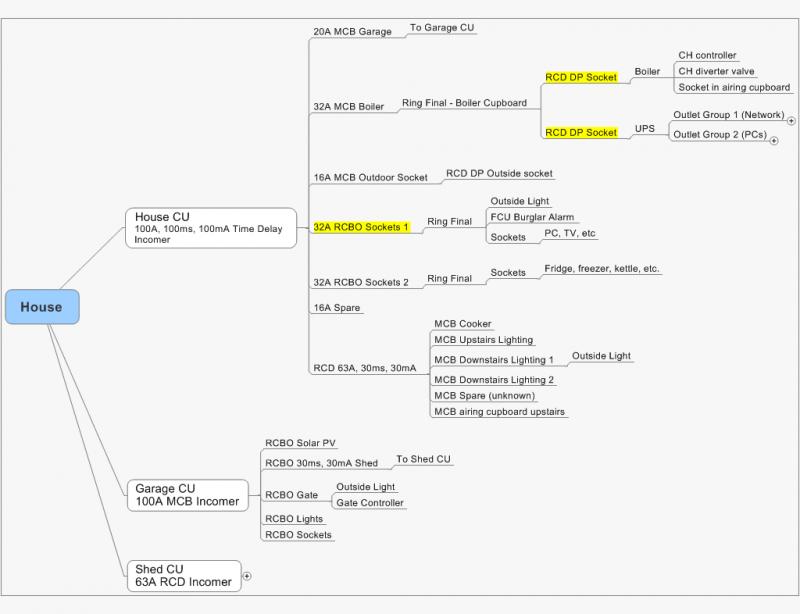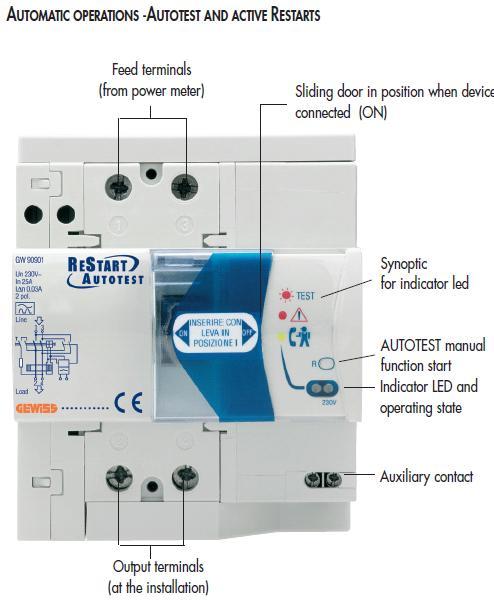Hi folk,
I had an unusual electrical issue last night. Any help appreciated to work out what happened.
TT earthing system, diagram below. The CU was replaced, I believe, in 2007, and I had some changes made a couple of months ago, described below.
At 1:38am this morning both the RCD socket powering the UPS, and the RCBO for Sockets 1 simultaneously tripped (highlighted on the diagram). I know it was simultaneous, as the log for the UPS, and the log for the alarm both had entries at this time.
When I checked in the morning, the RCD socket for the boiler had also tripped (also highlighted). I don't have anything logging on that circuit so I don't know if it was at the same time as the others.
All the devices resetted ok this morning.
The Socket1 and Socket2 RCBOs (previously MCBs), and the RCD sockets in the boiler room were put in recently by an electrician as well as the time delay main incomer (previously 100mA 30ms). This was to help diagnose any trips, and to get the discrimination between the main incomer, and the various downstream RCD/RCBOs.
Any suggestions as to what could cause trips in this way?
Thanks!
I had an unusual electrical issue last night. Any help appreciated to work out what happened.
TT earthing system, diagram below. The CU was replaced, I believe, in 2007, and I had some changes made a couple of months ago, described below.
At 1:38am this morning both the RCD socket powering the UPS, and the RCBO for Sockets 1 simultaneously tripped (highlighted on the diagram). I know it was simultaneous, as the log for the UPS, and the log for the alarm both had entries at this time.
When I checked in the morning, the RCD socket for the boiler had also tripped (also highlighted). I don't have anything logging on that circuit so I don't know if it was at the same time as the others.
All the devices resetted ok this morning.
The Socket1 and Socket2 RCBOs (previously MCBs), and the RCD sockets in the boiler room were put in recently by an electrician as well as the time delay main incomer (previously 100mA 30ms). This was to help diagnose any trips, and to get the discrimination between the main incomer, and the various downstream RCD/RCBOs.
Any suggestions as to what could cause trips in this way?
Thanks!




